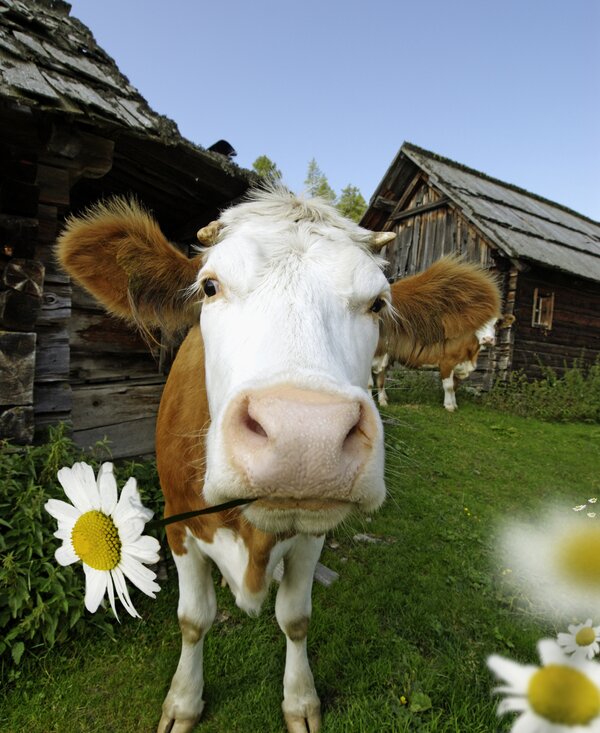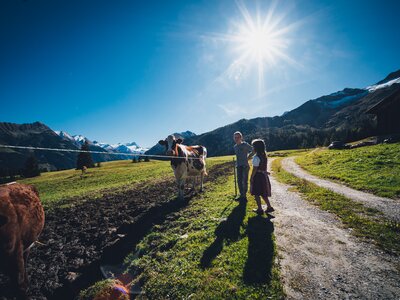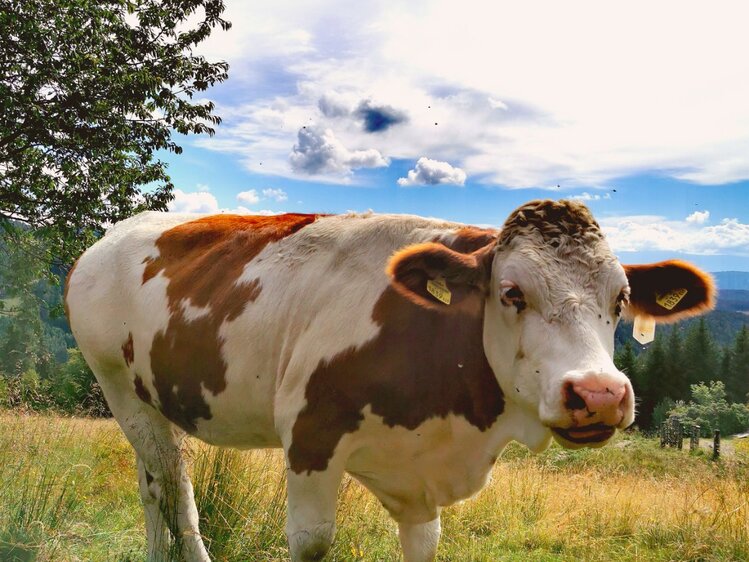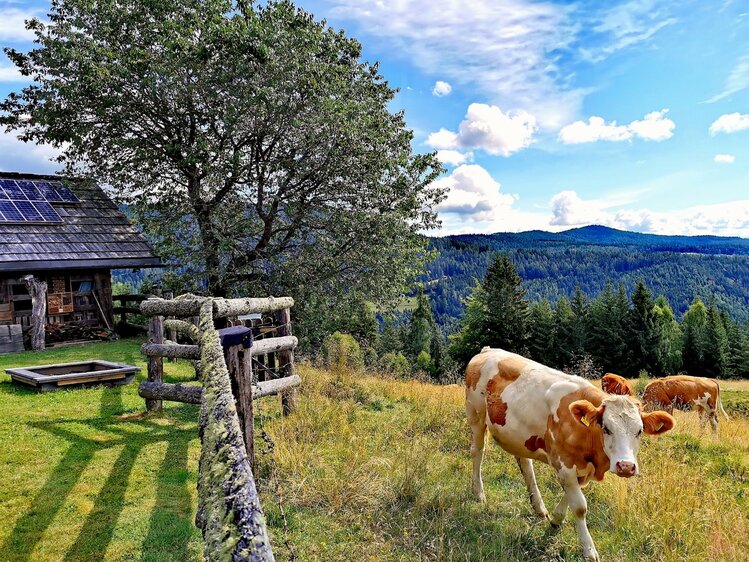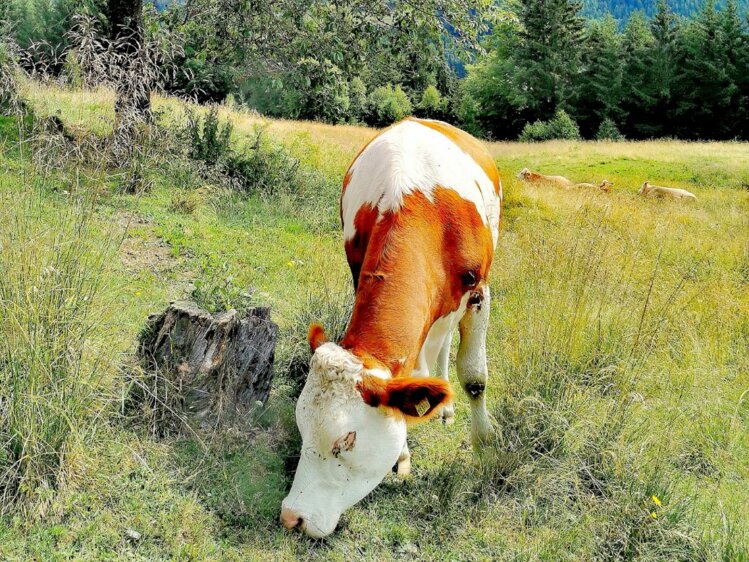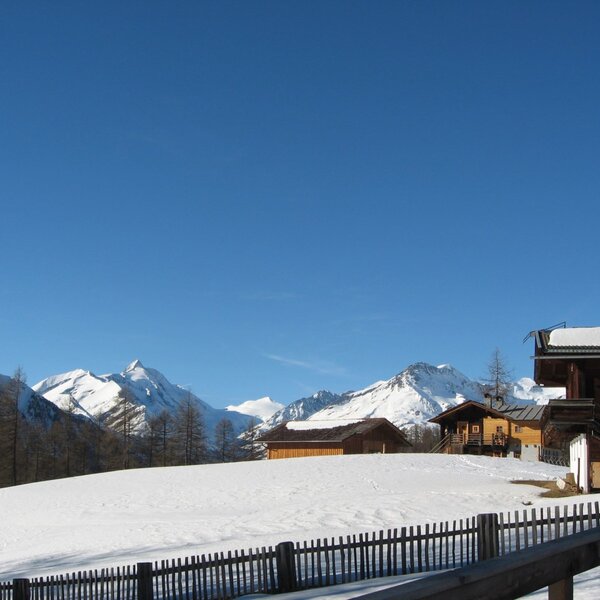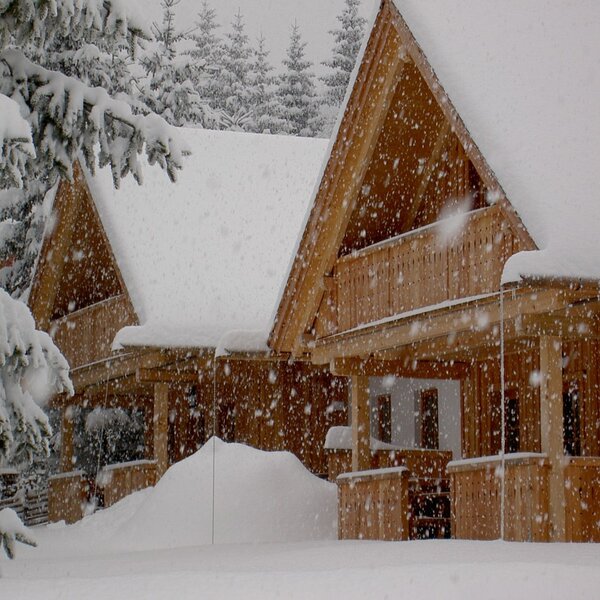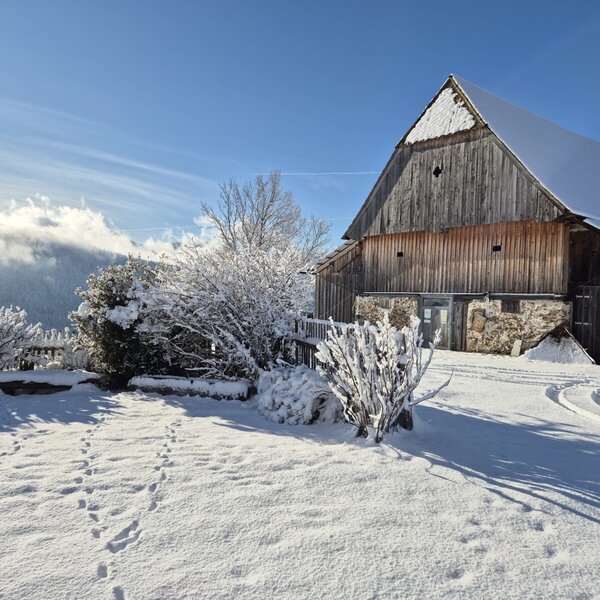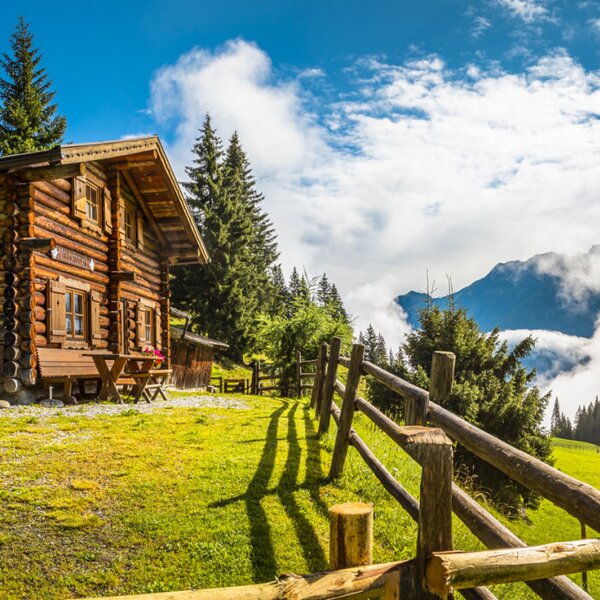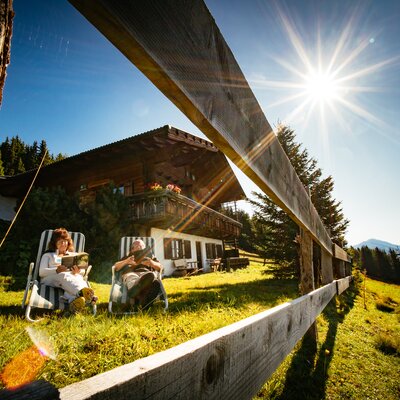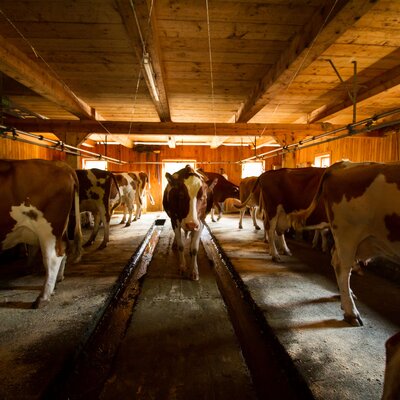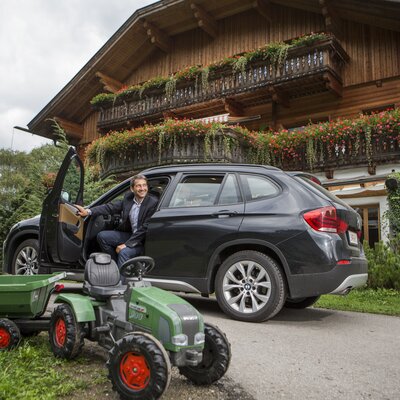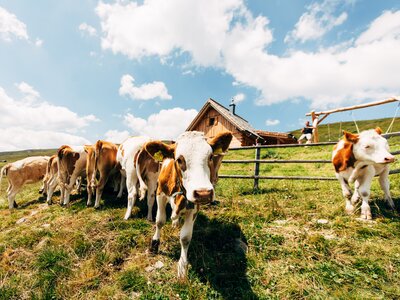
The alpine farmer asks for respect
There are clearly defined rules of conduct for alpine hikers and alpine hut vacationers when dealing with grazing livestock. Before I go into these in more detail, I have brought an expert on alpine cattle, Sepp Obweger, the chairman of the Carinthian Alpine Farming Association, on board my "alpine boat" today. The Almwirtschaftsverein is a voluntary organization that represents the interests of alpine farmers and supports them in the management of their alpine pastures. What is particularly important to Sepp, who is a committed alpine farmer himself, in this context?
He says: "First and foremost, I ask mountain hikers and mountain hut residents to respect the animals and the people who work with them. That's actually already a good thing! The ten rules of conduct that have been drawn up include almost everything that needs to be observed. Personally, I have a few very specific requests. Leave the mountain pasture as you would like to find it again, i.e. without any mess. This also applies to dog excrement. Collect it carefully, because these remains on the grass can be very dangerous for grazing animals. Grazing animals are not petting animals, they also have their rest periods, they can be irritable from previous experiences with humans and animals, mother cows see strangers and dogs as a threat to their calves. 95% of all conflicts with grazing animals and hikers are due to those with mother cows and hikers with dogs. Even if some grazing animals seem particularly trusting to you, don't rely on them, keep your distance!"
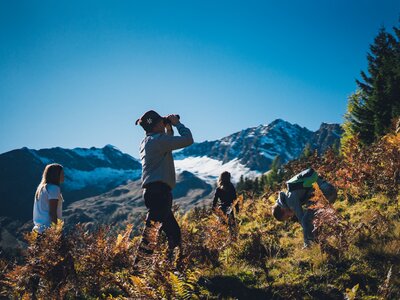
There are also wild animals on the mountain pasture!
On the alpine pasture and around your alpine hut, there are of course countless species of wild animals in addition to domestic and farm animals. Just think of the cute marmots in some areas, mice, hares, deer, foxes and rare birds. Please, enjoy the sight of them (be quiet, dear alpine visitors!), but for God's sake leave them alone, don't disturb them. Don't feed them, they are doing very well without your help. And keep your dog strictly on a lead, because he can't read my warnings.
As you probably know, there are now also "bad" wolves and bears on the mountain pastures, which are very hard on livestock, especially sheep. In the highly unlikely event that you come across a wolf or bear, stay calm! Don't run away under any circumstances, but stand still and make loud noises while you have your dog on the lead anyway. The wild animal will then troll off by itself. By the way: hunters call this "scaring off game".
Another tip from Sepp Obweger, head of the Almwirtschaftsverein: "It is precisely because of the presence of these predators that you have to be even more sensitive when entering a pasture for livestock herds and dealing with them. You don't know what this herd has already "experienced", because as a foreign creature you can automatically become a perceived threat to them."
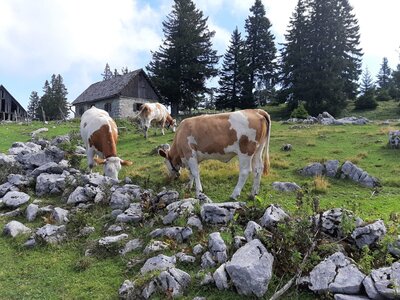
All far too strict for you?
Do all these tips seem too serious to you, with too much finger-wagging? You may be right, but I'm sure you'll agree with me if you take a closer look: Even from a safe distance and with the right behavior, alpine animals will give you great pleasure, it doesn't necessarily have to be a selfie with them.
Notburga Samrock
12 Article(s)
